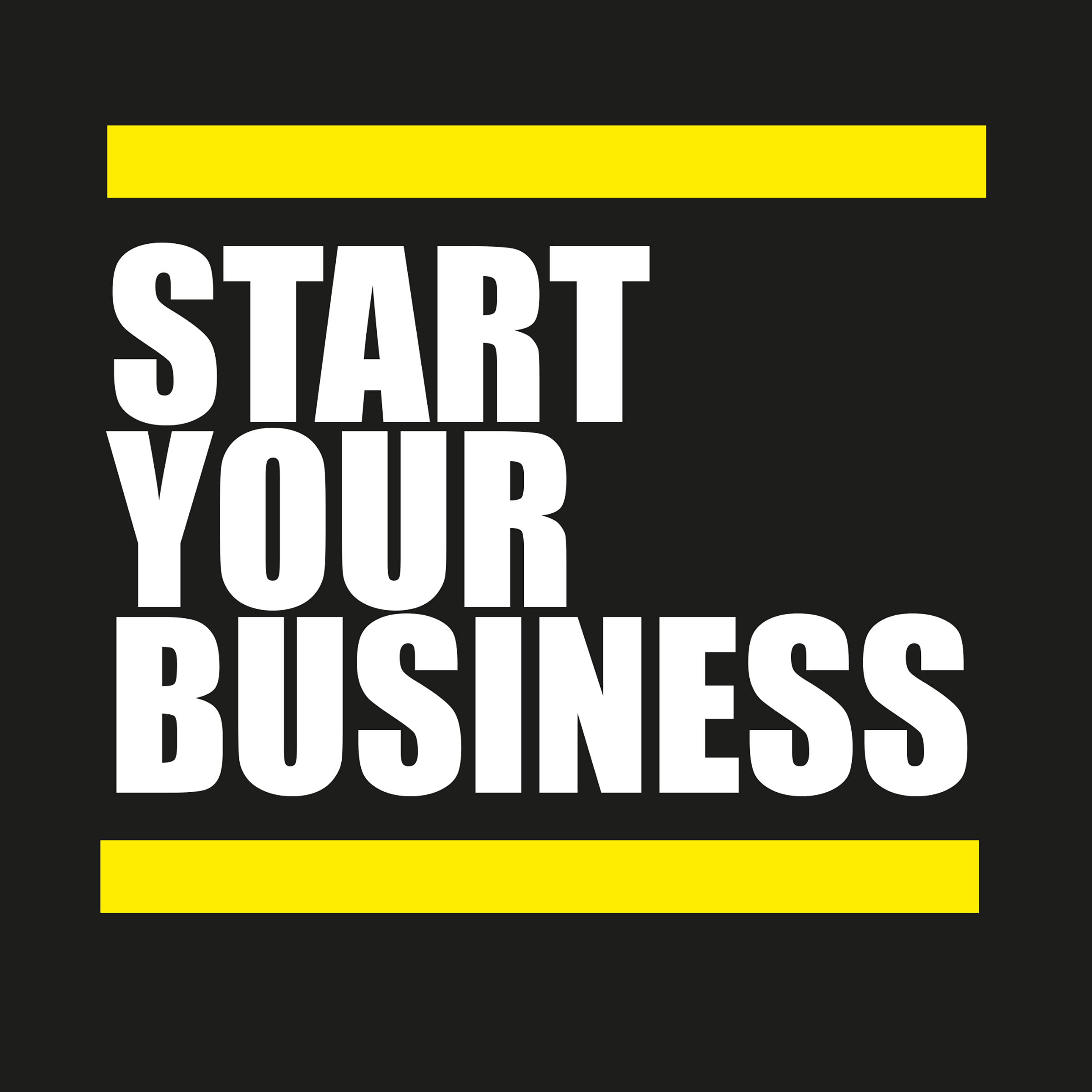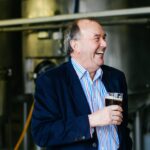Louise Thomas & Dr Will Hicks
An interview with Louise Thomas and Dr Will Hicks, the founders of health tech start-up Air Aware Labs – pioneering the next evolution in personalised health insights: air pollution.
Louise and Will, you are the founders of health tech start-up Air Aware Labs. Tell us more about how the concept for tracking air pollution was developed.
Louise: The idea came from personal experience – raising my kids in South London, I got involved in a school project about local air quality and realised how little control we have over what we’re breathing every day. Realising the impact and the potential to address it, I subsequently left my 20+ year career in government to go all in. I joined a venture-building programme where I met Will, and we haven’t looked back since.
Will: I researched air pollution for my PhD at Imperial College, so I already had an interest in its pervasive effects on the body. When I then took up running during lockdown, I noticed how air quality changed, even on the same route. Meeting Louise and realising our shared passion for mitigating the effects of air pollution, we wanted to make that invisible risk visible – and empower people with data to act on it.
Health tech wearables such as Whoop and similar health monitoring apps have become very popular. How has your concept made an impact on personalised health?
Will: AirTrack gives people real-time, hyperlocal data – like having a personal air pollution lab in your pocket. It’s helping runners, cyclists, parents and commuters make smarter choices, which means less exposure to bad air quality and better long-term health.
Louise: It’s not just about data – it’s about turning awareness into action. Wearable tech gives us vital insights, from sleep through to the food we put in our bodies every day, to ensure we’re getting the right nutrition – AirTrack is about giving people agency over what they breathe every day and making clean air part of everyday decisions in the same way as we think about other health insights. It’s so simple, yet it isn’t yet part of our day-to-day experience of staying healthy. We believe it’s the next evolution in public health.
How has the quality of air pollution declined in recent years, and what do you attribute this to?
Will: Despite some progress, the UK still has around 90% of people breathing toxic air. Urban growth, road traffic and outdated infrastructure keep pollution levels high. The hidden cost is huge: it costs the UK more than £500m a week in ill health – affecting our NHS, productivity at work and life expectancy. GP appointments for asthma are up 45% on last year. But because it’s invisible, it isn’t in the public conscience as much as it should be, and that’s what we need to change.
What are your thoughts on initiatives to improve air quality, such as ULEZ and similar schemes?
Louise:They’re a step in the right direction – reducing vehicle emissions matters, and recent research shows that the rolloutof Clean Air Zones has led to substantial improvements in air quality across the country. But there is always more to be done, and policy alone isn’t enough. People also need clear, accessible information to protect themselves day to day. That’s where we come in.
Do you feel that the messaging is clear when it comes to air quality?
Will: It’s improving, and awareness around climate action is helping, but it’s still too abstract. Pollution is invisible – so not only is it easy to ignore, but it also means people just aren’t getting this kind of information in the way that lets them do something about it. Our mission is to make it accessible, tangible and personal, so people see it, understand it and can act.
How do AI and algorithm-based technologies have a role in your business concept?
Louise:Air pollution is hyperlocal and highly dynamic, yet most people experience it through static, generalised data. Levels of air pollution can vary dramatically even within the same neighbourhood, but at best, people tend to get information averaged across a whole city or a single daily index that doesn’t reflect how they move through spaces. AI and data modelling let us streamline workflows and turn vast amounts of environmental data into something personal and actionable – helping users not just understand air pollution but actively avoid it. It analyses local conditions and personal exposure in real time – so each user gets insights that matter for them.
What were some of the main challenges that you faced as a health tech startup?
Will: Founding a startup is often romanticised, but the reality is that it can be rooted in rejection, isolation and, at times, an irrational level of self-belief. One of the most profound challenges to overcome has been realising that belief in your own vision is non-negotiable. When you’re trying to build something new – a new behaviour, a new category or way of thinking – the proof points are still in development, and self-doubt can creep in. But amidst last-minute funding being pulled, shifting goalposts and ghosting, leaning into self-belief and the mission and having such an energised co-founder and team of people around you creates an engine of progress.
Louise: One of the biggest eye-openers for me is how long everything seems to take – particularly when you’re a passionate team that is committed to delivering change in the now. An unexpected bright spot, though, has been how much collaboration is possible and how much support you get from the startup ecosystem. Even when it might feel that you’re alone, the reality is far from it. Contributing to, and benefiting from, the communities around you provides strength to keep going.
How are you finding the investment process?
Louise: It’s competitive, can feel slow-moving and at times, driven by a volume-approach to deal flow. Early-stage investors often want traction, metrics and proof, which you’re still in the process of creating as a startup. But we’re finding partners who recognise and share our mission. Investors increasingly see clean air as a health, economic and productivity issue.
You both met at a venture-building programme. Tell us more about this initiative and how it helped your business.
Will: It gave us early structure, access to expert guidance and mentors, and a supportive community when we were shaping our idea. Ultimately, being part of that venture-building programme and other accelerators more generally has enabled us faster market entry and continues to be valuable as we scale.
Why did you feel that you were a good fit as business partners?
Louise: We bring different things to the mix which combine to become powerful – scientific expertise, academia, and experiences of working in government and business studies, to name a few. The main aspect is that we’re united by the same mission and belief in the problem we’re solving, and the ability to take that on alongside someone you trust is invaluable.
What are your top tips for working in a partnership?
Will: Communicate constantly – even when it’s uncomfortable.
Louise: And always ensure that your focus comes back to the mission.
How useful was your academic background, such as having a doctorate in pollution science, in terms of brand credibility?
Will: My doctorate in pollution science is very helpful and ensures scientific credibility behind the AAL proposition. It shows we’re not just another gadget. We’re combining cutting-edge science with tech to deliver real value. But that’s just one aspect. As Louise references frequently – it takes a village – and AAL is supported by a team of experts in air quality, technology, product design, public policy and medicine. With air pollution being such a complex issue impacting public health, it requires the right team to make it accessible.
How would you say your brand is positioned? Is it a premium service or one for everyone living in built-up areas?
Louise: Everyone deserves the right to clean air, and it is an integral part of a thriving society. We want AirTrack to be accessible, not exclusive. It’s for parents, athletes, commuters, employers – it’s for everyone.
What has been the most effective medium for promoting your services?
Will: Sharing real stories – like how a parent or runner uses AirTrack to make daily choices. Word of mouth, partnerships and trusted media have also been powerful for us.
How do you unwind after a busy day?
Louise: Family time – hanging out with my kids and enjoying some of our favourite parts of London in the knowledge it’s not compromising our health. Boxing away the frustrations also helps!
Will: Running still keeps me sane – and now I always know the best route.
Which entrepreneurs do you most admire, and why?
Will: I admire many entrepreneurs who don’t always make the headlines. These are people building quietly but meaningfully in tough sectors like climate, health, and social equity. At the same time, I find initiatives like the Giving Pledge deeply inspiring, not just for the capital involved, but for the mindset shift it represents: that success is not about accumulation, but redistribution, impact, and long-term thinking. That ethos really resonates with me.
Louise: I’d agree with Will – those entrepreneurs who have demonstrated the impact of combining business with purpose, like Patagonia’s Yvon Chouinard. We were lucky that Patagonia became an early ally for AAL.
Do you feel there was enough support available when you were starting out?
Louise:There’s great support out there – but it can feel invisible too if you don’t go and seek it out! The Venture Builder and other accelerators have been vital for us. Peer networks and good mentors make all the difference.
How do you see the business developing over the next five years?
Will: Clean air is the most important health metric no one’s tracking. Ultimately, we see the business building on our existing presence globally. We’re active in over 100 countries. We want AirTrack in every major city, empowering millions to take control of their exposure.
Louise: And influencing policy by showing where people face the biggest risks – creating a cleaner, healthier urban future.
Lastly, if you could introduce one piece of legislation to improve air quality, what would it be?
Louise: For the UK and many other countries: legislation to meet World Health Organisation guidelines.


